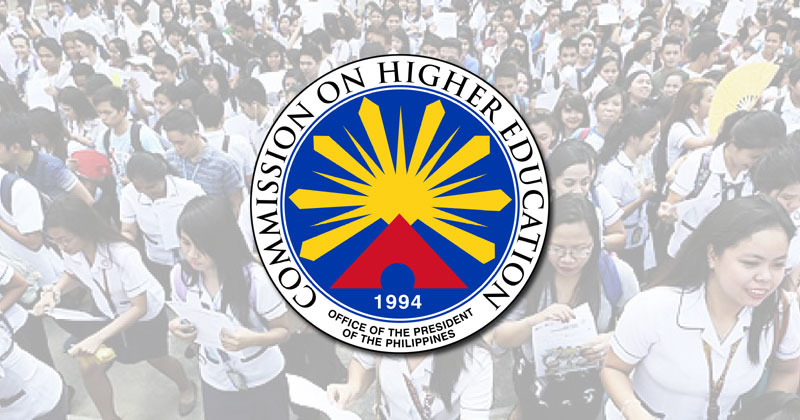The Commission on Higher Education (CHED) launched Bayanihan 2 for Higher Education Tulong Program (B2HELP) to provide subsidy and allowance to 60,000 students in private and public higher education institutions (HEIs).
The P300M fund for the B2HELP is part of the Bayanihan to Recover as One Act (Bayanihan 2) or Republic Act 11494 signed into law by President Rodrigo Roa Duterte recently to jump start the economy and provide additional amelioration assistance to affected Filipinos.
“The B2HELP will provide a one-time fixed grant of five thousand pesos (P5,000) to qualified students whose families are now facing financial difficulties brought about by work stoppage and closure of establishments due to the community quarantine,” said CHED Chairman J. Prospero E. De Vera III.
“It shall prioritize students in private HEIs who still have outstanding unpaid tuition and miscellaneous fees which they incurred in Academic Year (AY) 2019-2020 or AY 2020-2021,” De Vera added.
“We manifest our sincere appreciation of the government’s one-time financial assistance to students under the Bayanihan 2 Act. Even with the modest amount of assistance, this will surely go a long way in reaching out to many students who come from families who are financially affected by economic downturn at this time of the pandemic,” said Coordinating Council of Private Educational Associations (COCOPEA) Chairperson Lourdes Almeda-Sese.
COCOPEA is the umbrella organization composed of the Philippine Association of Colleges and Universities (PACU), Catholic Educational Association of the Philippines (CEAP), Association of Christian Schools, Colleges and Universities (ACSCU), Philippine Association of Private Schools, Colleges, and Universities (PAPSCU), and Tech-Voc Schools Association of the Philippines, Inc. (TVSA).
Sese said that this also supplements other government assistance to students in private HEIs particularly the Tertiary Education Subsidy or the TES under RA 10931.
Under the B2HELP initiative, private schools will submit the list of students with unpaid tuition and miscellaneous fees to the CHED Regional Office. Once received, the CHEDRO will immediately evaluate the completeness of the application documents and the information/data requested for each potential grantee.
Participating HEIs with complete application documents and approved grantees shall become B2HELP Partner Institutions.
Each private Partner Institution shall be limited to a maximum number of thirty (30) grantees during the initial selection. If there are more than 30 recommended qualified grantees, the CHEDRO shall select the first 30 names from the HEI list. The remaining recommended grantees can be considered in the next round of selection until the CHEDRO has filled its regional slot allocation.
If unfilled slots remain after approval of grantees from the private Partner Institutions, the remaining slots can be distributed to the participating public HEIs in accordance with the selection and ranking process of the institution.
Since the start of the pandemic, CHED has been working with HEIs to see the negative impact of COVID-19 on their students.
“We lobbied the Congress to include an amelioration package for affected students, particularly in private universities. CHED thanks the members of Congress and President Duterte for helping our affected students continue their studies,” De Vera said.
Last September 2020, CHED and the Unified Student Financial Assistance System for Tertiary Education (UniFAST) launched the P1B Tabang OFW program to give a one-time educational assistance of P30,000 to dependents of overseas Filipino workers (OFWs) who were were repatriated and could not go back to their overseas work due to the COVID-19 pandemic. CHED and the Department of Labor and Employment (DOLE) are currently implementing the Tabang OFW program. (via CHED)



